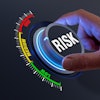February 8, 2001 -- Accenture, formerly known as Andersen Consulting; METI, Japan's Ministry of Economy Trade and Industry; and the Electronic Commerce Promotion Council of Japan (ECOM) today announced findings from a new joint survey that predicts the size of Japan's B2B e-commerce (EC) market will exceed 110 trillion Yen (approx. U.S. $1 trillion) by 2005, five times its current size.
The latest survey, which updates previous Accenture studies of Japan's EC Market conducted separately with METI (formerly known as MITI, Ministry of International Trade and Industry of Japan) and ECOM, estimates that Japan's total B2B EC Market amounted to 22 trillion Yen (U.S. $200 billion) in 2000, or 2.5 times what it was in 1998. This translates into an annual growth rate of 60 percent.
The new report, titled Market Research on Japanese Electronic Commerce Market in 2000, is a follow-up to two 1998 surveys conducted by Accenture and METI. It also builds on the work of a 1999 B2C e-commerce survey conducted by Accenture and ECOM.
The survey evaluates the predictions made by the earlier surveys and includes a breakdown of e-marketplaces as a total of the B2B market by product segments for the first time in Japan. In addition, the survey points to a growing gap between those industries using B2B e-commerce to their advantage and those that are being left behind. Industries such as electronic information equipment and automotive-related fields are showing faster than expected growth in B2B e-commerce. Conversely, industries such as chemical products, paper and office equipment, electricity and gas are lagging behind the expectations of the 1998 survey. The bottom line is that an inter-industrial digital divide is anticipated to emerge, where advanced e-business companies are enhancing their global competitiveness by using Internet technologies, while those not using the Web effectively are in danger of losing their competitive edge.
Japan doesn't have the B2B or Internet market cornered, however. A report from eMarketer forecasts that the number of active Internet users in the Asian-Pacific Region will increase dramatically, accounting for more than 27 percent of the world's total online population by 2004.
The eAsia Report predicts that the active Internet population in the region will rise from 49 million users last year to 173 million net users in 2004, a 38 percent compound annual growth rate (CAGR). Currently, the Internet penetration in Asia is still relatively low compared with the rest of the world, accounting for only 21 percent of the world's online population, said Eddie Cheung, analyst at eMarketer. By the end of 2004, however, Asia will see Internet population rise to slightly more than a quarter of the world's total.
The report shows Japanese Internet users currently account for more than 36 percent of the total Asian Internet population. This high percentage will quickly dissipate as Internet development in China continues to gain strength. By the end of 2004, eMarketer estimates that China's Internet users will account for 17.4 percent of Asia's total Internet population. Japan's user base will shrink to 18.5 percent.
The report notes Asia Pacific's e-commerce revenues have grown dramatically over the past year, with revenues reaching $39.4 billion at year-end 2000. eMarketer estimates revenues will continue to climb to more than $338 billion by the end of 2004. Even though total Asian e-commerce revenues will increase substantially over the next few years, stated Cheung, the region as a whole still accounts for only a fraction of the total revenues on a worldwide basis. eMarketer expects total Asian e-commerce, as a world percentage, to peak at 14 percent by 2001, but to shrink to 10.6 percent by the end of 2004.
The eAsia Report provides key statistics and information in over 192 pages, with over 230 charts and graphs illustrating original analysis and projections, aggregating research data from a variety of sources, including Forrester Research, Jupiter Communications, Computer Economics, Asian Banker Journal, Merrill Lynch,The Industry Standard, The Gartner Group, Goldman Sachs, Media Metrix, Nielson/NetRatings, China Internet World Information Center and Ernst & Young.















